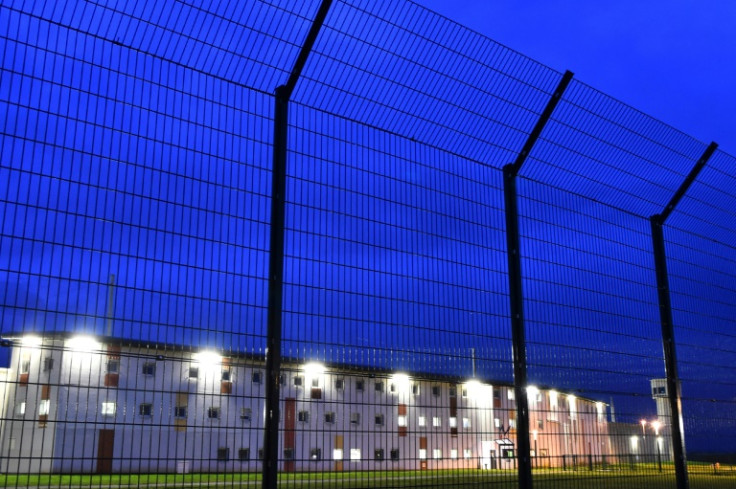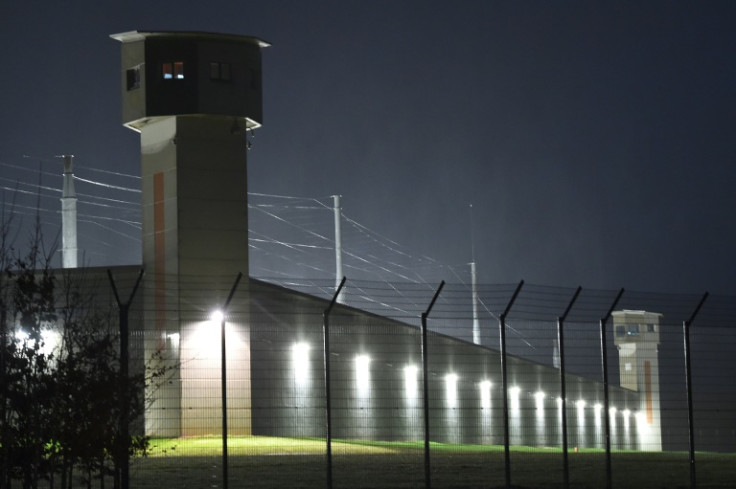
In the dead of night a drone hovers over a prison in southern France, secretly dropping packages to inmates inside. But one parcel becomes stuck in the railing outside a cell window, and guards seize three others.
Across France, prisoners have been making orders online for drones to illegally bring them everything from drugs and phones to their favourite fast food, often just outside their window.
The botched delivery in southern France in early 2023 led authorities to bring down a business called "Drone2France" that had been delivering goods to more than a dozen prisons in France and Belgium.
Inmates from late 2022 to December 2023 had been making orders via social media app Snapchat, paying an average of 450 euros ($490) per package, weighing a maximum 350 grammes.
The service provider required a minimum order of four packages per delivery, and they often fell from the drone's claws in potato sacks.
Another setup called "Air Colis" ("Air parcel"), busted in western France in September, lowered down contraband stuffed in socks on the end of fishing line.
And in another incident in southern France, authorities found parcels containing more than 100 grammes of cocaine and 700 grammes of cannabis.
Hundreds of such deliveries are made a year, prison guards say.
"There isn't a day when there isn't a drone flying over, whether on the mainland or in overseas territories," said Dominique Gombert of prison guard union FO Justice.
Last year, more than 1,000 drones were detected in flight over penitentiaries, 400 of which were "blocked", a source close to the case said.
The prisons authority did not reply to a request from AFP for comment, but union representatives provided details of how the drone deliveries worked.
Wilfried Fonck, the secretary-general of another prison guard union called Ufap-Unsa Justice, said the deliveries were becoming increasingly precise.
"They make it almost right up to a window," Fonck said.
Most orders are for cannabis and mobile phones, but also kebabs, spicy merguez sausages, ceramic knives or religious books, he explained.
Delivery services advertise directly on social media and can pick up the goods from an inmate's friend or relative.
Most drones are the smaller ones sold online, which is why packages cannot be too heavy.
The drone operator is usually located within a radius of two to five kilometres (1.2 to three miles) from the prison, with accomplices on the lookout.
The drone often flies with all its lights off, guided by a light the inmate shines out of their window.
The detainee then only needs to stretch their arm through the bars to catch the goods.
With less guards at nighttime, there is less chance of being caught.
"At most, you can conduct surprise searches the next morning," Fonck said. But that was often complicated because those storing the contraband were often the more discreet inmates.
Drone security breaches are not as serious in France as in Ecuador, where police in September defused an explosives-laden aircraft on the roof of a maximum-security jail.
But French authorities are still taking the problem seriously, ordering specialised equipment to deal with it in 2019 and 2021.
Justice Minister Eric Dupond-Moretti in July last year said the government had spent more than 12 million euros ($13 million) on gear to deter "95 percent of drone threats".
This gear includes detectors to catch drones over a prison, as well as electromagnetic scramblers to paralyse the aircraft and force them to make an emergency landing.
There had been some success to the measures, with some smugglers forced to revert to the older technique of simply lobbing goods over the prison's outside walls.
But Gombert said other operators of drone delivery services were constantly innovating to outplay aerial defences.
"Some hackers manage to circumvent the areas under protection," he said.
Others "test higher altitudes" to avoid anti-drone domes.
Another source close to the case said the authorities were often left playing catch-up.
"We're playing a game of Tom and Jerry," they said.









